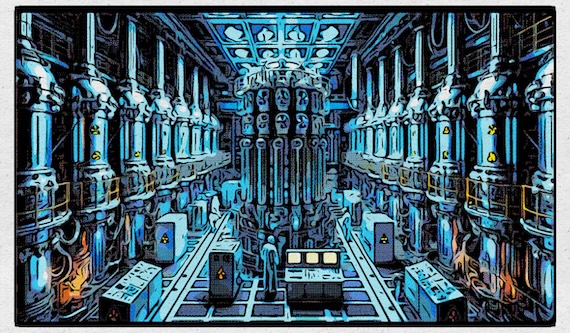( RFE/ RL ) – U.S. intelligence has concluded that the odds of an Israeli attack on Iran’s nuclear program in the next few months are high, according to major American media, but the jury is out on whether Israel can destroy its archfoe’s nuclear facilities on its own.
Iran is widely believed to be at its weakest and most vulnerable in decades, mostly due to Israeli actions in the past year that severely damaged Tehran’s regional network and weakened its air defenses and missile production capabilities.
This assessment is “not strange” because the possibility has been floated for months, specifically following Israeli strikes on Iran last October, according to Hamidreza Azizi, a fellow at the German Institute for International and Security Affairs.
“But this now being reported by major outlets could be linked to U.S. President Donald Trump’s approach toward Iran, which is a mixture of a desire to strike a nuclear deal while threatening military action,” he told RFE/RL’s Radio Farda.
Potential Israeli Attack
The Israeli attack last October was in response to the Islamic republic launching 200 ballistic missiles, which penetrated Israel’s formidable air defenses but caused little damage.
While Tehran downplayed the impact of the Israeli attack, satellite images quickly showed Israel had successfully degraded Iran’s air defense and missile-production capabilities.
Analysts say the attack was calibrated, thanks to pressure from former U.S. President Joe Biden’s administration, which convinced Israel not to hit Iran’s nuclear facilities and energy infrastructure.
The attack marked the largest aerial offensive against Iran since the 1980s and showed that Israel can target facilities deep inside Iranian territory.
But Israel is unlikely to be able to destroy Iran’s nuclear program without help from the United States.
Iran’s two key nuclear sites are the underground fuel enrichment plant in Natanz and the enrichment site in Fordow, which is dug into a mountain. Some have expressed doubt about whether even U.S. weapons can reliably penetrate and completely neutralize those facilities.
Since taking office in January, Trump has expressed a desire to make a “verifiable nuclear peace agreement” with Iran, but his language has become noticeably more threatening over time. While Trump initially talked about wanting to see Iran “prosper”, he more recently said he would “love to make a deal with them without bombing them.”
Israeli Prime Minister Benjamin Netanyahu is a staunch critic of negotiating with Iran and he opposed the 2015 nuclear deal that was signed during U.S. President Barack Obama’s administration.
While Netanyahu has a great rapport with Trump, there is no guarantee that he will reconsider attacking Iran’s nuclear sites if Trump were to reach a deal with Tehran.
“For Netanyahu, no deal with Iran is better than any deal. He probably worries that Trump might give away the whole store to the Iranians,” says Ali Vaez, the director of the Iran Project at the International Crisis Group.
Advanced Nuclear Program
Iran has significantly expanded its nuclear program since Trump withdrew from the 2015 nuclear deal during his first term in office and reimposed sanctions against Tehran.
The Islamic republic insists that its nuclear program is peaceful and that it has no intention to develop a bomb.

“Centrifuges,” Digital, ChatGPT / Clip2Comic, 2025
But it is now enriching uranium to 60 percent purity, which is close to weapons-grade levels and far above the 3.67 percent limit under the nuclear accord. As of October 2024, Iran has just over 182 kilograms of uranium enriched to up to 60 percent. Around 42 kilograms are needed to produce one bomb, meaning Tehran has enough to make four bombs.
The U.S. Office of the Director of National Intelligence said in its 2024 annual threat report that it does not believe Iran is currently pursuing a bomb, but its activities in recent years “better position it to produce a nuclear device.”
If the Islamic republic chose to make a bomb, it would be mainly limited by the time required to build a deliverable nuclear warhead, which can take anywhere from a few months to two years.
The New York Times earlier this month reported that there are indications Iran is looking into quickly building a crude nuclear weapon to ward off an attack.
But the D.C.-based Institute for Science and International Security argues that even if Iran were to build a crude weapon in half a year, it risks being detected in just a few months, which “is more than sufficient for a devastating military response.”
Vaez said while there is a military option in dealing with Iran’s nuclear program, there is no military solution.
“Iran’s most important asset is the knowledge that it has gained, not the physical infrastructure on the ground or in bunkered facilities,” he added.
Fereshteh Ghazi of RFE/RL’s Radio Farda contributed to this story.
Via RFE/ RL
Copyright (c)2024 RFE/RL, Inc. Used with the permission of Radio Free Europe/Radio Liberty


 © 2026 All Rights Reserved
© 2026 All Rights Reserved